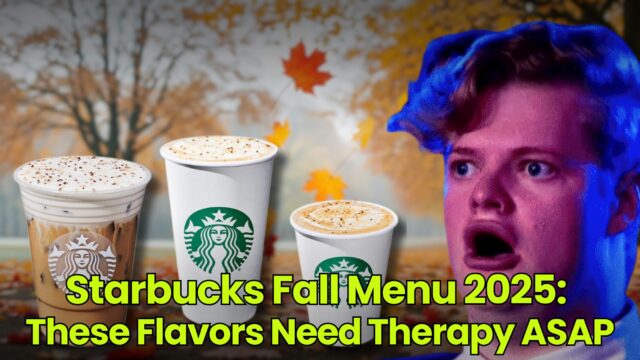McDonald's v. McHemp—fast feeder fights trademark filing by CBD merchant
Trademark dispute is one of many for the Golden Arches, but there's a reason it fights them, legal experts say.

A merchant selling smokable hemp flowers, CBD gummies and various psychoactive compounds has filed to trademark its name, “McHemp”—but legal experts say approval is a McLongshot.
That’s because McDonald’s Corp. has moved to oppose its application, arguing the North Carolina shop is tarnishing its brand by trading off its famous “Mc” mark.
That McDonald’s is moving to protect its intellectual property is nothing new, said three trademark attorneys interviewed by Ad Age, noting the burger giant routinely challenges trademark applications that could introduce consumer confusion with the brand and its family of registered “Mc” trademarks such as McCafe, McDelivery and McChicken.
The McHemp case is slightly more unusual, they said, because McDonald’s isn’t arguing that consumers would think McHemp is associated with McDonald’s, but that they would know it is obviously not: McHemp’s use of the “Mc” prefix in its name to promote products McDonald’s does not sell amounts to a joke at the Golden Arches’ expense.
“They’re saying, ‘If we let you trade off of our famous mark, you’re going to be blurring our brand and tarnishing our brand because you’re associated with something that we don’t want to be associated with—even if people know McHemp isn’t originating from McDonalds,” explained Dahlia Saper, a trademark attorney at Saper Law.
A representative for McHemp was not available for comment. The business appears to operate a single store in Whitsett, North Carolina, along with an online shop—although its website had a non-working link to franchise information. The company, identified in filings as McClendon Enterprises, filed for federal protection with the U.S. Patent and Trademark Office in November, seeking to register its name to trademark “retail store services featuring CBD and hemp products.”
McDonald’s filed its opposition on May 3, during the 30-day period that the McHemp application is considered “published for opposition.” The USPTO’s Trademark Trial and Appeal Board (TTAB) would decide to grant or reject the application after reviewing such opposition briefs, should it progress that far.
McDonald's did not immediately respond to a request for comment.
Trademark attorneys said they were nearly certain that McDonald’s opposition would be enough to prevent McHemp from winning approval for a multitude of reasons, including McDonald’s long history and multiple trademarked names—13 in all—with demonstrated distinction and millions invested in developing and protecting their goodwill. There’s also the matter of the ability to wage legal war against the giant corporation, should it come to that.
“I represent a lot of small clients—not the McDonald’s of the world—and can say it costs a lot of money to defend yourself from a big corporation,” said Josh Gerben, a trademark attorney and founder of Gerben Intellectual Property. Were McHemp and McDonald’s to square off in a court, he said, “they’d be looking down the barrel of $50,000 to $100,000 at least,” Gerben noted.
It is likely therefore that McHemp would drop pursuit of the mark, though the attorneys Ad Age spoke to about the case cautioned that they could not speak with absolute certainty (none of the attorneys represent either McDonald's or McHemp). The nature of McDonald’s opposition makes it unlikely the parties would reach a settlement that might allow limited use of the mark, said Linda Goldstein, co-chair of the advertising, marketing and digital media practice at BakerHostetler.
“Very often when you have this kind of proceeding before the TTAB, companies will settle, and sometimes parties will agree to a limited carve-out where the party agrees to a limited use of its mark,” Goldstein said. “I can’t predict ultimately what would happen, but this isn’t about confusion, but about what McDonald’s would perceive to be damage to the mark. It’s not the kind of dispute where carving out a narrow permissible use for McHemp is going to achieve McDonald’s goals.”
Don’t miss the latest news. Sign up for Ad Age newsletters here.
And were McHemp to win its trademark application, it would not necessarily preclude McDonald's from taking separate legal action, Goldstein said.
McDonald’s has a lengthy history of protecting its name—and the “Mc” prefix—from businesses all over the globe, including reported intellectual property tangles with a Philippines restaurant called McJoy; a San Francisco coffeehouse called McCoffee (run by a woman named Elizabeth McCaughey); and a Scottish restaurant called McMunchies.
“They have this belief, correct or incorrect, that ‘Mc’ is a famous identifier for their brand and therefore, they should prevent people from registering trademarks that use Mc. And they do file a lot of challenges,” said Gerben. “We see a lot of similar activity with Monster Energy around businesses that seek to trademark the word ‘Monster.’”
Whether McHemp can overcome enormous odds remains to be seen; but an informal poll conducted over Twitter by Gerben would indicate his followers have its back. Asked whether McDonald’s “should be able to stop other non-food related businesses from using the ‘Mc’ prefix?” 78.6% chose “McPlease” vs. just 21.4% who said “there is only one “Mc.”
Polls like these make for good “David and Goliath” stories, said Goldstein, but there’s much at stake for big brands and their reputations.
McDonald’s, she said “is an iconic mark. and has been for decades. It designates to the public who is behind the product and services. It designates who the brand is. And given the enormous amount that McDonald’s has spent establishing the value and the goodwill of that mark, I think any potential erosion they would see as quite damaging.”
“Companies like McDonald’s have to be proactive,” added Saper. “What is McDonald’s if not for their brand?”

 BigThink
BigThink 
































